(Solved): TEL431 L1: Quiz - Score for this quiz: 20 out of 20...
TEL431 L1: Quiz
Questions 10
Score for this quiz: 20 out of 20
Attempt 1
Instructions
This quiz is open note and is not timed.
From the lesson 1 overview and learning materials page:
• Read Key Competencies for Lifelong Learning: European Reference Framework
• Watch the Daniel Pink TEDtalk, based on his book, A Whole New Mind (1:22 long)
Then take the following 10-question quiz worth 20 points
Question 1
2 / 2 pts
From the perspective of the European Reference Framework, why is it important to engage in lifelong learning?
- To be competitive in your choice of career, so that you can attain the highest entry-level salary possible.
- To be successful in the ever-changing workplace, which includes such factors as growing internationalism, rapid rate of change, and new technologies.
- To maximize your impact in your future job.
- To address the needs of learners in a way that will prepare them to be competitive.
Question 2
2 / 2 pts
According to the European Reference Framework for Key Competencies for Lifelong Learning, being fluent in a second language
- Is essential, because it calls for skills such as mediation, and intercultural understanding.
- Allows workers the ability to work in jobs that support international clients.
- Wires the brain in a more sophisticated way, which supports the development of critical thinking skills.
- All of the above
Question 3
2 / 2 pts
The most relevant technology skills needed for 21st-century learners are
- Keyboarding and basic word processing skills.
- Troubleshooting, maintenance, and upgrades of technology devices.
- the ability to search, collect, and process information, then access it for relevance.
- the ability to stay updated in professional learning technology tools, accessing tools, and learning new technology tools quickly once it is determined a tool is fitting for a professional need.
Question 4
2 / 2 pts
The most important skill in learning to learn is the ability to
- Know your preferred learning strategies, recognize strengths and weaknesses, and be able to search for educational and training opportunities, along with guidance and available support.
- Know what resources are available for independent and personalized learning.
- Know how to navigate the Internet in search for experts who might be good mentors for you.
- None of the above.
Question 5
2 / 2 pts
From the 21st century perspective, being an entrepreneur requires being able to act on creative, innovative, and possibly risky ideas, and the ability to plan and manage projects. The skills required include:
- Project management, effective representation and negotiation, and the ability to work by oneself as well as in teams, and assessing one's strengths and weaknesses.
- Working with others, networking, and establishing a strong digital social network around professional interests.
- Leadership.
- Facilitating diverse groups of people involved in a project.
Question 6
2 / 2 pts
According to Daniel Pink, basic left-brain abilities such as being logical, linear, and sequential still matter, but they matter less; a different set of abilities matter more. Those abilities are:
- right-brained abilities such as artistry, empathy, inventiveness, and big-picture thinking.
- mid-brained abilities such as communicating, collaborating, and critiquing.
- brain-stem abilities such as realizing when an idea has been exhausted and knowing when to start over.
Question 7
2 / 2 pts
According to Pink, jobs of the future
- will likely involve some routine.
- are not known.
- will require at least a bachelor's degree.
- will definitely require knowing how to use technology.
Question 8
2 / 2 pts
No one knows the jobs of the future. But we can state the _________ skills that will be important.
- Recycling
- Cognitive
- Data analysis
- Physical
Question 9
2 / 2 pts
Pink believes the skills required for future jobs will involve dealing with novelty, nuance, and customization. With this in mind, he suggests educators ________the relying on routines, right answers, and standardization.
- rely more heavily on
- move away from
Question 10
2 / 2 pts
The six abilities that matter most in the 21st century, according to Pink, are design (not just function), story (not just argument), non-routine, symphony/big picture thinking and putting the pieces together (not just focus), empathy (not just logic), play (not just seriousness), and meaning (not just accumulation). For educators, this means that learners should ______________ new metrics/ways of measuring, get real about STEM (science, technology, engineering, and math) where problems are poorly defined, multidisciplinary, and has multiple answers, none of which are perfect. 3) tear down the walls between disciplines and between the walls in the schools, 4) infuse arts education throughout the curriculum, and 5) promote and defend autonomy.
- reject
- experiment with
- adopt
Expert Answer

Buy This Answer $15
-- OR --
Subscribe $20 / Month
